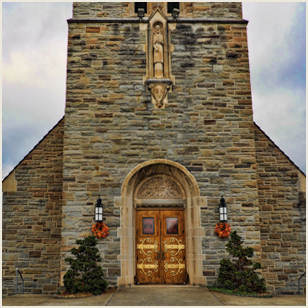Abandonment (of self), Page: Quotes, Quote Author, Quote Topic, Spiritual (life), Thomas Merton (1915-1968)
If we can, by God’s grace, turn ourselves entirely to Him, and put aside everything else in order to speak with Him and worship Him, this does not mean that we can always imagine Him or feel His presence.
–Thomas Merton (1915-1968)
Page: Quotes, Quote Author, Quote Topic, Spiritual (life), Thomas Merton (1915-1968)
Do not look for rest in any pleasure, because you were not created for pleasure: you were created for joy. And if you do not know the difference between pleasure and joy you have not yet begun to live.
–Thomas Merton (1915-1968)
Creation, Page: Quotes, Quote Author, Quote Topic, Spiritual (life), Thomas Merton (1915-1968)
One has to be alone, under the sky, Before everything falls into place and one finds his or her own place in the midst of it all. We have to have the humility to realize ourselves as part of nature.
–Thomas Merton (1915-1968)
Abandonment (of self), Page: Quotes, Quote Topic, Spiritual (life)
In our approach to God, we must carry with us ourselves and all our works, as a perpetual sacrifice to God; and in the Presence of God, we must forsake ourselves and all our works, and, dying in love, go forth from all creatureliness into the superessential richness of God: there we shall possess God in an eternal death to ourselves.
–Blessed John Ruysbroeck (1293-1381)
Abandonment (of self), Page: Quotes, Quote Topic, Spiritual (life)
But when we transcend ourselves, and become in our ascent towards God, so simple that the naked love in the height can lay hold of us, where love enfolds love, above every exercise of virtue that is, in our Origin, of Which we are spiritually born, then we cease, and we and all our selfhood die in God. And in this death we become hidden sons of God, and find a new life within us: and that is eternal life.
–Blessed John Ruysbroeck (1293-1381)
Love, Page: Quotes, Quote Topic, Spiritual (life), Suffering
The more the soul loves, the more it desires to love, and the greater its suffering, the greater its healing.
–Saint Columbanus (543-615)

